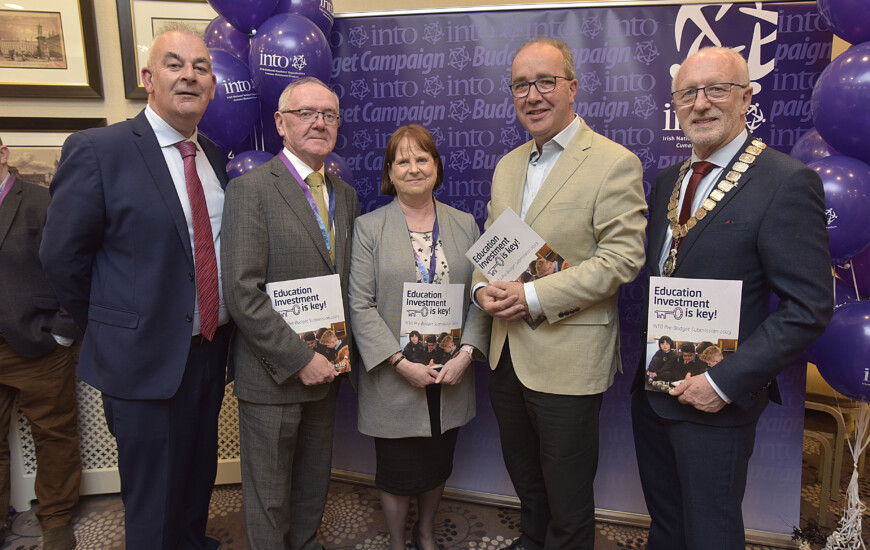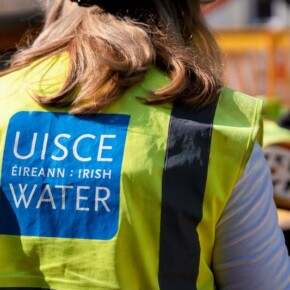Chronic underinvestment in primary education is adversely affecting Irish children
Dublin People 28 Jul 2022
John Driscoll, Irish National Teachers’ Organisation President, highlights the challenges facing primary education ahead of the 2023 budget.
With only a few short weeks before the start of the new school term, the Government must accept that chronic under-investment is impacting very negatively on primary and special education. Two years of COVID-19 and a legacy of neglect have placed an intolerable burden on schools.
The September budget offers an opportunity to end the neglect and to prioritise providing the best learning environment for our children.
In a recent report, the Department of Education Chief Inspector underlined the “considerable and immediately negative impact on learning and progress” brought about by school closures during COVID-19. The same report also states that “students at most risk of educational disadvantage have been disproportionately affected”.
There is a clear need to address these deficits quickly.
For our members, ending overcrowded primary classes remains a major priority.
Ireland’s classes are the largest in the EU, averaging 23.3 children per classroom, which is over three pupils higher than the EU average.
Consequently, Irish teachers have less time to spend with each child to monitor their progress. Cutting class sizes by two pupils will have tangible benefits in the short term.
The Government also needs to provide adequate funding to meet essential running costs, including heating, lighting, insurance, general upkeep, and teaching materials.
Our primary schools only receive €1 per pupil per day.
Inexplicably secondary schools receive nearly double that to cover the same bills. This inequity must end.
The INTO calls for a 20% increase in the primary capitation grant to enable schools to meet rising energy costs and provide more attractive learning environments.
Without this support, struggling boards of management will need to look for other ways to make ends meet.
Schools already rely on hard-pressed parents who fundraise to meet their day to day running costs. This cannot continue.
Other gaps in the current education budget have also taken their toll. Never before has it been so important to have strong and well-supported school management teams to ensure that important programmes can be delivered for the benefit of pupils and their parents.
Recession-era cuts removed vital middle management posts from schools. These posts must be fully reinstated next year.
In January, the Minister for Education, Norma Foley TD, acknowledged the “enormous goodwill from school communities” and promised that “the Department of Education would provide every support” in reopening after the pandemic. Teachers have met recent challenges head-on and welcomed an additional 5,000 Ukrainian students to primary schools.
We will continue to play our part, but government investment and support must increase dramatically to give all of our pupils a fairer chance to recover from the disruption they have experienced. It is becoming increasingly apparent that the pandemic has affected children’s mental health.
We have seen a 40% increase in referrals to Child and Adolescent Mental Health Services.
Without timely interventions, we may witness the after-effects for many years to come.
While it is imperative that parents and pupils have access to a system providing therapeutic services, we are proposing a short-term measure to offer some relief while government recruits these essential health professionals. We are seeking direct funding to provide on-site mental health supports in schools.
In recent months primary teachers have been meeting with their local TDs to explain the strain on the primary education sector.
According to the Department of Education’s own figures, the INTO’s pre-budget submission outlined in this article would cost €72 million in a full year.
This equates to only 72 cents extra per pupil per school day. Surely our pupils are worth this modest investment?
Undoubtedly the cost-of-living crisis means many hard choices in this budget but investing in education should be one of the easiest to make because it would have the most powerful effect on our children’s future.
We are calling on Government to show their support for primary and special education by making that investment.











